How To Deal With Hard Water In Your Pool
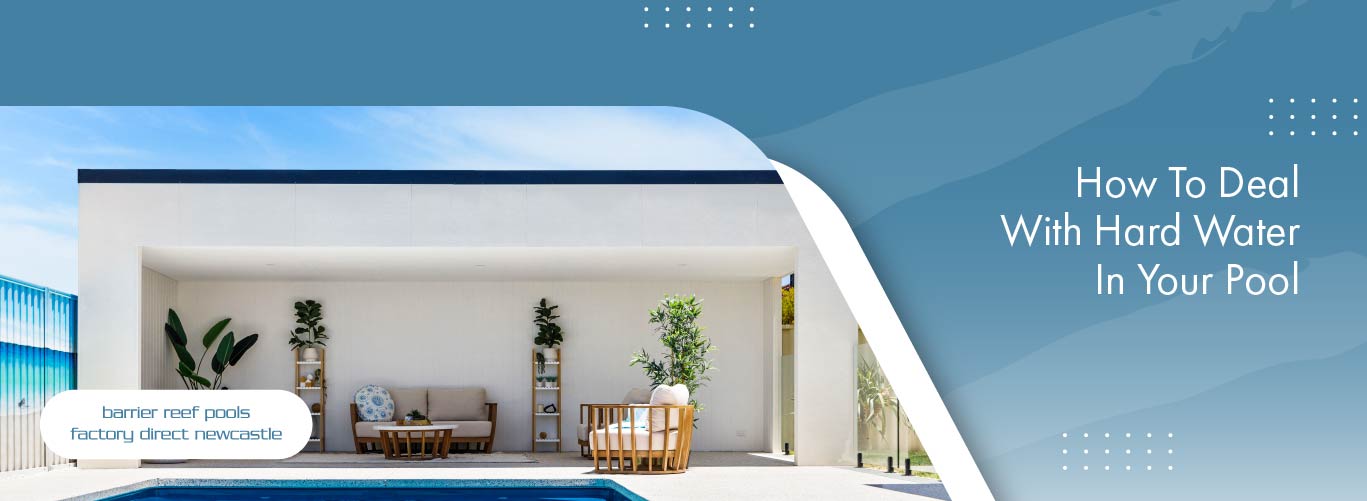
The Impact of Hard Water on Pool Maintenance
Owning a pool can be one of life’s greatest luxuries, offering a personal oasis for relaxation and exercise. However, maintaining a pool comes with its own set of challenges, one of the most common being the presence of hard water. Hard water can wreak havoc on your pool, leading to unsightly scale build-up, cloudy water, and a plethora of maintenance issues. In this post, we’ll explore the nature of hard water, its effects on pools, and practical solutions for managing it effectively.
Understanding Hard Water: What It Is and How to Test for It
Hard water is characterised by a high concentration of minerals, primarily calcium and magnesium. These minerals enter your pool via your water supply, often originating from groundwater sources rich in these elements. Their presence can lead to several complications if not managed correctly, such as scale buildup on pool surfaces, clogged filters, and reduced efficiency of pool heaters. Over time, this can result in increased maintenance costs and potential damage to pool equipment. Proper water treatment and regular maintenance are essential to mitigate these issues and ensure the longevity of your pool.
What is Hard Water?
Hard water contains higher levels of dissolved minerals, such as calcium and magnesium, compared to soft water. These minerals can accumulate over time, leading to scale formation on pool surfaces and equipment, as well as other issues that can compromise the aesthetic and functional quality of your pool. Scale buildup can cause filters to clog, reduce the efficiency of heating systems, and make surfaces feel rough to the touch. Regular maintenance and water testing are essential to manage these problems and ensure your pool remains in optimal condition.
How to Test for Hard Water
Testing for hard water is a straightforward process:
- Use a Test Kit: Purchase a water hardness test kit from a pool supply store. Follow the instructions to measure the calcium hardness of your pool water.
- Professional Testing: For more accurate results, you can also hire a professional service to test your pool water. This is especially useful if you suspect other issues like pH imbalance or contamination.
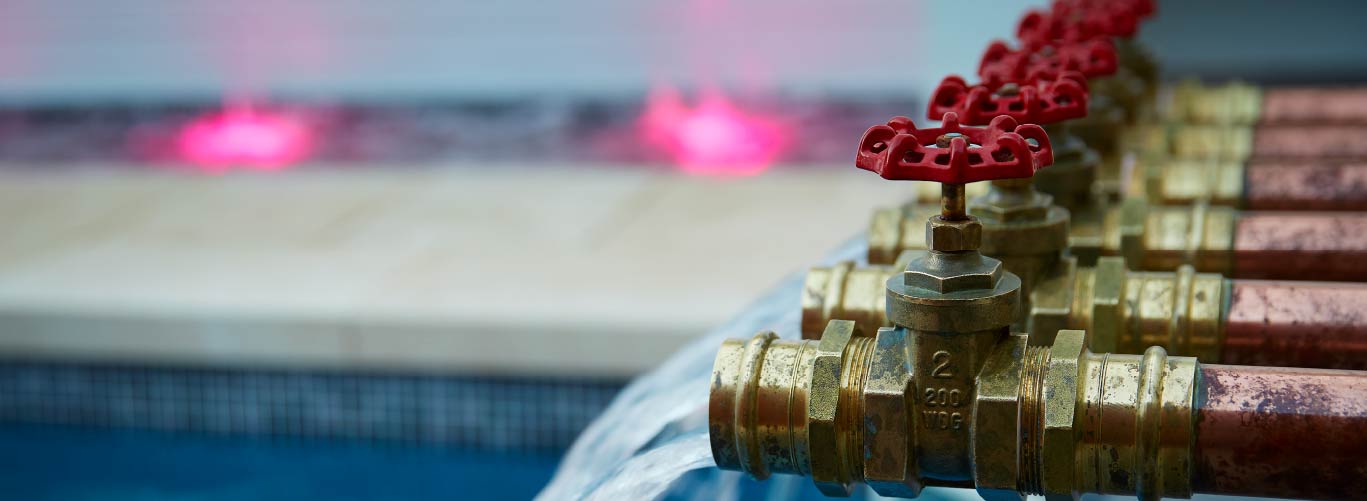
The Effects of Hard Water in Pools: From Scale Build-Up to Cloudy Water
Understanding the detrimental effects of hard water can help you take proactive measures to mitigate them.
Scale Build-Up
One of the most noticeable effects of hard water is the formation of scale, a hard, chalky deposit that adheres to pool surfaces and equipment. This unsightly scale build-up can clog filters, reducing water flow and filtration efficiency. It can also diminish the performance of heaters by insulating the heat exchange surfaces, leading to higher energy consumption and costs. Additionally, the appearance of tiles and liners can be marred by these deposits, resulting in a less inviting swimming environment. Regular maintenance and water treatment are crucial to prevent these issues and ensure the longevity and efficiency of your pool system.
Cloudy Water
Hard water can also lead to cloudy or murky water. The high mineral content, often composed of calcium and magnesium, can interfere with the clarity of your pool water, making it less inviting for swimmers. Over time, these minerals can accumulate and form scale deposits on pool surfaces and equipment, further affecting water quality and potentially leading to costly maintenance and repairs. Therefore, managing hard water is crucial for maintaining a pristine and welcoming swimming environment.
Equipment Wear and Tear
The minerals in hard water can cause wear and tear on pool equipment, shortening the lifespan of pumps, filters, and heaters. Regular maintenance and monitoring can help mitigate these effects, but prevention is always better than cure.
Best Practices and Innovative Solutions
Managing hard water involves a combination of regular maintenance and the use of specific treatments designed to counteract its effects.
Using a Water Softener
One of the most effective ways to deal with hard water is to use a water softener. A water softener exchanges calcium and magnesium ions for sodium or potassium ions, thereby reducing the hardness of the water.
Chemical Treatments
There are specific chemical treatments available that can help manage hard water. Sequestrants and chelating agents can bind to calcium and magnesium ions, preventing them from forming scale.
Regular Cleaning
Regularly cleaning pool surfaces and equipment can help manage scale build-up. Use a specialised scale remover for pool tiles and liners, and ensure that filters are frequently cleaned to maintain optimal performance.
Reverse Osmosis
For more severe cases, reverse osmosis systems can be installed to filter out the minerals causing water hardness. While more expensive, this solution is highly effective and can drastically improve the quality of your pool water.
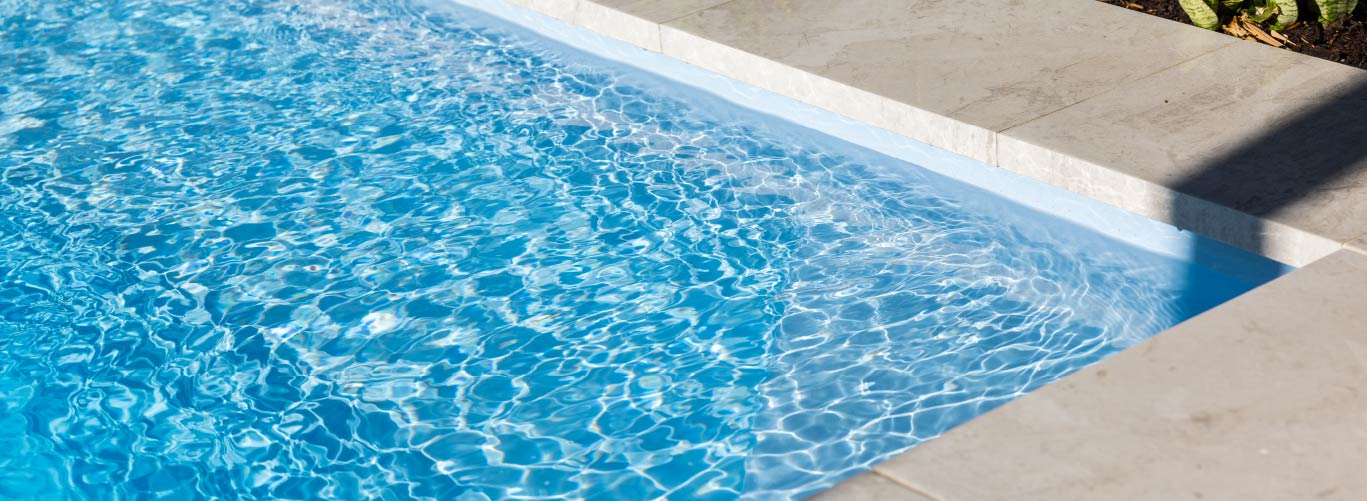
Maintenance Tips for Pool Owners
Prevention is always the best strategy when it comes to dealing with hard water. Here are some maintenance tips to help you keep your pool in top condition:
Regular Testing
Frequent testing is crucial for maintaining balanced pool water. Test the calcium hardness levels at least once a month and adjust as needed. Keeping a log of your test results can help you spot trends and act before issues become severe.
Balancing Water Chemistry
Maintaining balanced water chemistry can help mitigate the effects of hard water. Ensure that pH, alkalinity, and calcium hardness levels are within recommended ranges. Use appropriate chemicals to adjust these parameters as necessary.
Using Preventative Treatments
Add preventative treatments regularly to your pool water to manage mineral levels. These treatments can help prevent scale build-up and keep your water clear. Follow the manufacturer’s guidelines for best results.
Routine Maintenance
Regular maintenance of pool equipment can also help manage hard water. Clean filters, check pumps, and inspect heaters for any signs of wear and tear. Addressing issues early can prevent more significant problems down the line.
Emphasising the Importance of Regular Maintenance and Water
Hard water can pose challenges for pool owners, but understanding its effects and taking proactive steps can help you manage and prevent these issues effectively. Regular testing, balanced water chemistry, and the use of specialised treatments are crucial for maintaining your pool in pristine condition.
By implementing these strategies, you can ensure that your pool remains a beautiful and inviting space for relaxation and enjoyment. Remember, regular maintenance is key to preventing hard water issues and preserving the longevity of your pool and its equipment.
For more tips and expert advice on pool maintenance, be sure to follow our blog and stay updated with the latest industry insights. Happy swimming!
How To Deal With Hard Water In Your Pool

The Impact of Hard Water on Pool Maintenance
Owning a pool can be one of life’s greatest luxuries, offering a personal oasis for relaxation and exercise. However, maintaining a pool comes with its own set of challenges, one of the most common being the presence of hard water. Hard water can wreak havoc on your pool, leading to unsightly scale build-up, cloudy water, and a plethora of maintenance issues. In this post, we’ll explore the nature of hard water, its effects on pools, and practical solutions for managing it effectively.
Understanding Hard Water: What It Is and How to Test for It
Hard water is characterised by a high concentration of minerals, primarily calcium and magnesium. These minerals enter your pool via your water supply, often originating from groundwater sources rich in these elements. Their presence can lead to several complications if not managed correctly, such as scale buildup on pool surfaces, clogged filters, and reduced efficiency of pool heaters. Over time, this can result in increased maintenance costs and potential damage to pool equipment. Proper water treatment and regular maintenance are essential to mitigate these issues and ensure the longevity of your pool.
What is Hard Water?
Hard water contains higher levels of dissolved minerals, such as calcium and magnesium, compared to soft water. These minerals can accumulate over time, leading to scale formation on pool surfaces and equipment, as well as other issues that can compromise the aesthetic and functional quality of your pool. Scale buildup can cause filters to clog, reduce the efficiency of heating systems, and make surfaces feel rough to the touch. Regular maintenance and water testing are essential to manage these problems and ensure your pool remains in optimal condition.
How to Test for Hard Water
Testing for hard water is a straightforward process:
- Use a Test Kit: Purchase a water hardness test kit from a pool supply store. Follow the instructions to measure the calcium hardness of your pool water.
- Professional Testing: For more accurate results, you can also hire a professional service to test your pool water. This is especially useful if you suspect other issues like pH imbalance or contamination.
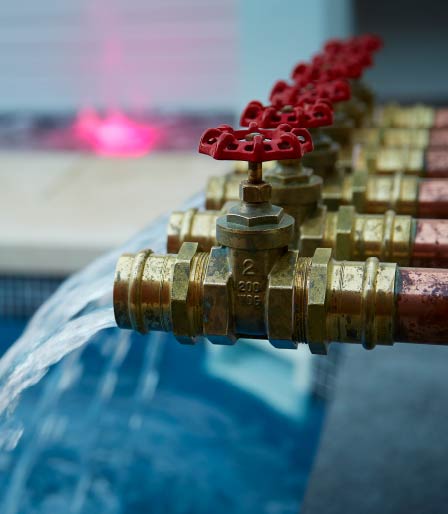
The Effects of Hard Water in Pools: From Scale Build-Up to Cloudy Water
Understanding the detrimental effects of hard water can help you take proactive measures to mitigate them.
Scale Build-Up
One of the most noticeable effects of hard water is the formation of scale, a hard, chalky deposit that adheres to pool surfaces and equipment. This unsightly scale build-up can clog filters, reducing water flow and filtration efficiency. It can also diminish the performance of heaters by insulating the heat exchange surfaces, leading to higher energy consumption and costs. Additionally, the appearance of tiles and liners can be marred by these deposits, resulting in a less inviting swimming environment. Regular maintenance and water treatment are crucial to prevent these issues and ensure the longevity and efficiency of your pool system.
Cloudy Water
Hard water can also lead to cloudy or murky water. The high mineral content, often composed of calcium and magnesium, can interfere with the clarity of your pool water, making it less inviting for swimmers. Over time, these minerals can accumulate and form scale deposits on pool surfaces and equipment, further affecting water quality and potentially leading to costly maintenance and repairs. Therefore, managing hard water is crucial for maintaining a pristine and welcoming swimming environment.
Equipment Wear and Tear
The minerals in hard water can cause wear and tear on pool equipment, shortening the lifespan of pumps, filters, and heaters. Regular maintenance and monitoring can help mitigate these effects, but prevention is always better than cure.
Best Practices and Innovative Solutions
Managing hard water involves a combination of regular maintenance and the use of specific treatments designed to counteract its effects.
Using a Water Softener
One of the most effective ways to deal with hard water is to use a water softener. A water softener exchanges calcium and magnesium ions for sodium or potassium ions, thereby reducing the hardness of the water.
Chemical Treatments
There are specific chemical treatments available that can help manage hard water. Sequestrants and chelating agents can bind to calcium and magnesium ions, preventing them from forming scale.
Regular Cleaning
Regularly cleaning pool surfaces and equipment can help manage scale build-up. Use a specialised scale remover for pool tiles and liners, and ensure that filters are frequently cleaned to maintain optimal performance.
Reverse Osmosis
For more severe cases, reverse osmosis systems can be installed to filter out the minerals causing water hardness. While more expensive, this solution is highly effective and can drastically improve the quality of your pool water.
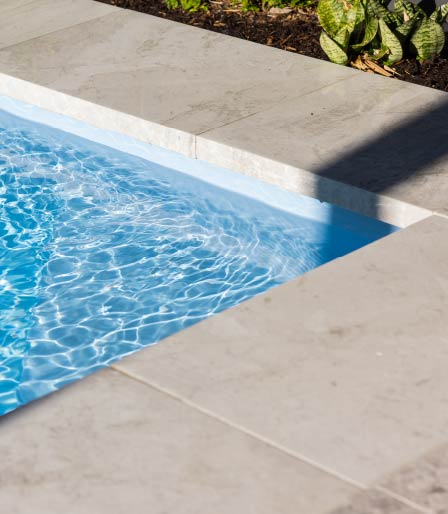
Maintenance Tips for Pool Owners
Prevention is always the best strategy when it comes to dealing with hard water. Here are some maintenance tips to help you keep your pool in top condition:
Regular Testing
Frequent testing is crucial for maintaining balanced pool water. Test the calcium hardness levels at least once a month and adjust as needed. Keeping a log of your test results can help you spot trends and act before issues become severe.
Balancing Water Chemistry
Maintaining balanced water chemistry can help mitigate the effects of hard water. Ensure that pH, alkalinity, and calcium hardness levels are within recommended ranges. Use appropriate chemicals to adjust these parameters as necessary.
Using Preventative Treatments
Add preventative treatments regularly to your pool water to manage mineral levels. These treatments can help prevent scale build-up and keep your water clear. Follow the manufacturer’s guidelines for best results.
Routine Maintenance
Regular maintenance of pool equipment can also help manage hard water. Clean filters, check pumps, and inspect heaters for any signs of wear and tear. Addressing issues early can prevent more significant problems down the line.
Emphasising the Importance of Regular Maintenance and Water
Hard water can pose challenges for pool owners, but understanding its effects and taking proactive steps can help you manage and prevent these issues effectively. Regular testing, balanced water chemistry, and the use of specialised treatments are crucial for maintaining your pool in pristine condition.
By implementing these strategies, you can ensure that your pool remains a beautiful and inviting space for relaxation and enjoyment. Remember, regular maintenance is key to preventing hard water issues and preserving the longevity of your pool and its equipment.
For more tips and expert advice on pool maintenance, be sure to follow our blog and stay updated with the latest industry insights. Happy swimming!


